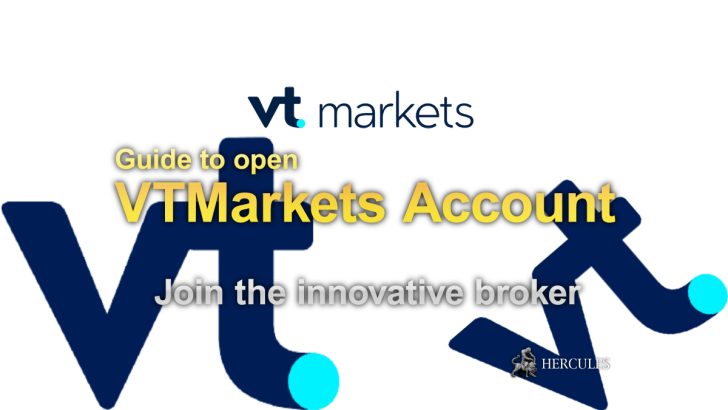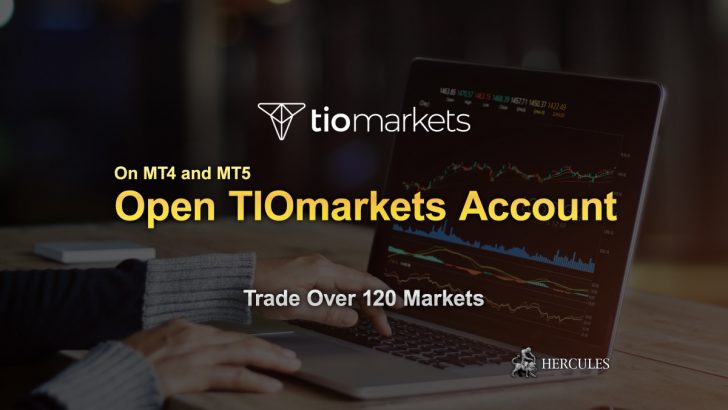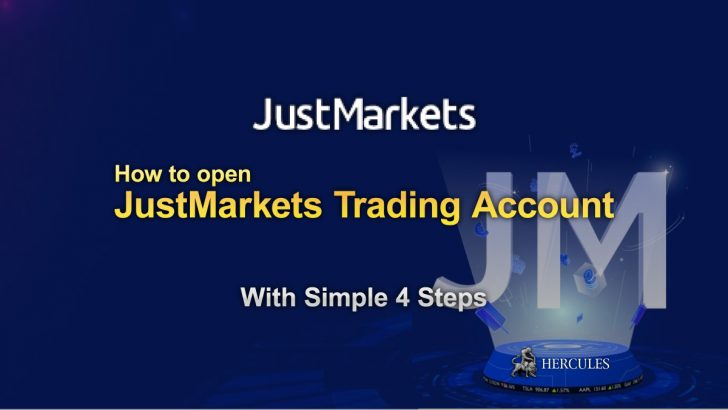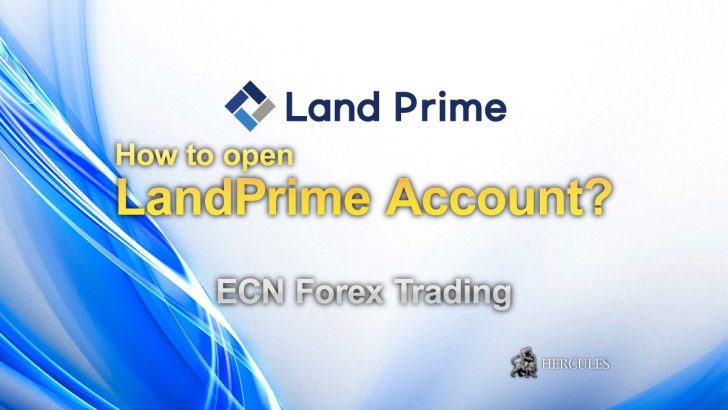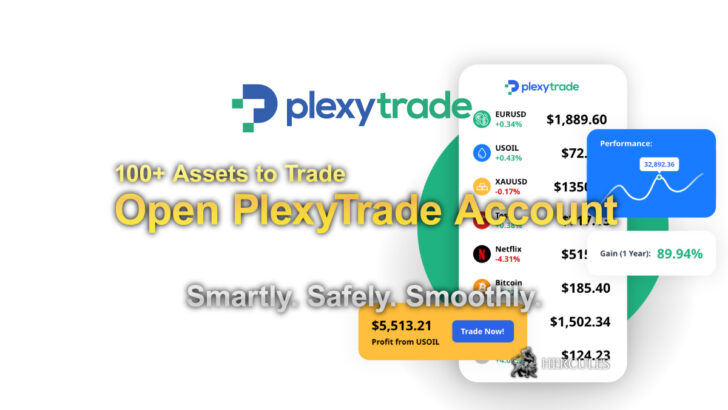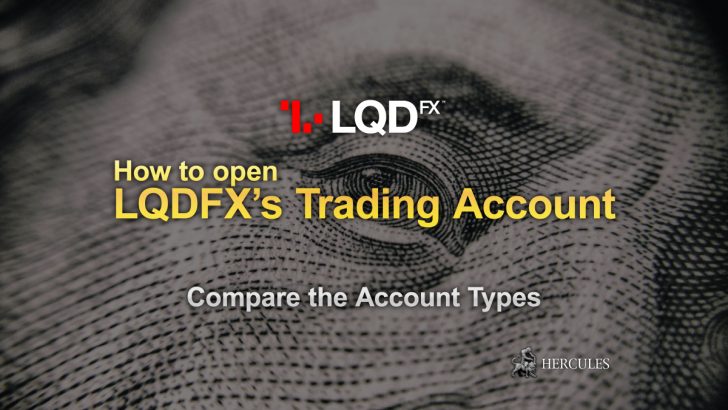How to open HYCM MT4 accounts (Demo, Live and Web-trader and Mobile)
This Beginner’s guide explains how to open MT4 accounts step-by-step.


- What is HYCM MT4 (MetaTrader4)?
- Opening HYCM MT4 Demo Account
- Opening HYCM MT4 Live Account
- HYCM MT4 WebTrader and Mobile
- What you can invest in with HYCM
- FAQs – Trading Forex and CFDs on HTCM MT4 and MT5
- Are there risks when trading with HYCM?
- What are ask and bid prices?
- How HYCM is getting quotes? What is the flow of quotations?
- Does HYCM manipulate market prices or trade against its traders?
- How do I manage risk on HYCM MT4 and MT5?
- What is margin call?
- What is the difference of Forex and Stock markets?
- Is there a time limitation to trade Forex?
- How often can I trade on HYCM MT4 and MT5?
- Is there a central Forex marketplace?
- What are Short and long positions?
- What is swap point and charge?
- What are “intraday” and “overnight positions”?
- What are the most commonly traded currencies on the Forex?
- What capital do I need to start trading?
- What do short and long positions mean?
- What factors influence the price of international currencies?
- What is a price Quote?
- What is Forex Trading?
- What is hedging strategy?
- What is Margin?
- What is spread?
- What is the definition of market makers?
- What trading strategies are profitable?
- Which currencies are traded more often?
- Who is the dealer?
- Who trades in FX market?
Go to HYCM Online Registration Page
What is HYCM MT4 (MetaTrader4)?
HYCM MT4 is MetaQuotes Software’s Metatrader 4 electronic trading platform powered by HYCM, allowing our clients to link their HYCM trading accounts to the widely-used MT4 trading platform.
On HYCM MT4 you will find a large range of markets to trade, including Contracts for Difference (CFDs) for Forex, Stocks, Indices, Commodities, and Cryptocurrencies (dependent on your jurisdiction).
You will have access to:
- 3 different chart types (line chart, bar chart, candlesticks chart),
- 9 timeframes (M1, M5, M15, M30, H1, H4, D1, W1, MN),
- Pre-installed indicators, and
- EA (Expert Advisor) trading facilities.

Opening HYCM MT4 Demo Account
By this point, you may already have an account with HYCM.
If not, you will need to create an account on the Official Website before you can continue.
Login to your client portal, click on Trading Accounts on the fixed top menu and choose ‘Create Demo Account’.
You will then be asked what account type you would like to open (Fixed, Classic, Raw) and what base currency you prefer.
Your MT4 demo username and password will then be emailed to you; you will use them to login later.
HYCM MT4 can be downloaded directly from our website in a matter of minutes. Simply go to Trading > Platforms > and click on the ‘Download Desktop’ button.
Once the download is complete, navigate to your ‘Downloads’ folder and launch the installer.
After a successful installation, MT4 will launch:
- Click File > Login to trade Account
- Fill in your username, password and choose HYCM-DemoEU server
- Click Login to complete the process.

When the platform is opened, data will automatically start to update, and the price charts will be activated.
You will have a default, 50,000.00 in your chosen currency, available to trade with.
Opening HYCM MT4 Live Account
We recommend all clients use a demo account to familiarize themselves with the trading environment and safely execute their first trades with no risk of monetary loss.
When you feel confident enough, you can activate your live account with HYCM and proceed to trade live with real money.
To do this, simply deposit funds in your account and your MT4 live account login details will be automatically emailed to you.
HYCM MT4 WebTrader and Mobile
WebTrader is a web-based version of the MT4 platform that runs in an internet browser, meaning clients can trade the markets on any computer connected to the internet.
To launch the MT4 WebTrader, login to your HYCM trading account, access your client portal and click the ‘WebTrader’ tab at the top of your screen.
The mobile version of MT4, available for both iOS and Android, is ideal for those who like to trade on the go.
To download the app, go to the Official Website, click Trading > Platforms > and choose between the ‘App Store’ or ‘Google Play’ buttons.
What you can invest in with HYCM
HYCM provides trading on all major capital markets.
You can trade Forex, Metals, Oil, Gas, Commodities, Indices and Stocks all from a one platform and one account.
HYCM’s trading platforms make it simple and easy to trade all products.
Previously being able to trade all capital markets was only for advanced traders due to complex products and trading conditions.
Now individuals new to the markets can safely, easily, and quickly understand all capital markets and benefit from having a diverse portfolio and endless investment options.
Open HYCM Real or Demo Account
1. Forex Currency Pairs
Forex trading has grown massively over the last 20 years.
Daily global trading turnover rose from around $500 billion in 1988 to over $4 trillion today.
This is due to the market’s incredible liquidity combined with 24 hour trading, the growth of home computers and the advancement of the internet, the forex market is now very easily accessible to retail investors.
With HYCM, you can take buy or sell positions, 24 hours a day, 5 days a week, on a many currency pairs with competitive spreads.
2. Energies (Oil and Gas)
Energy products such as Oil and Natural Gas are amongst the most actively traded products in the world.
Previously only available to institutional investors, now with HYCM retail investors can gain access and invest into energy related products.
With HYCM, you can benefit and profit from both rising and falling energy prices.
You can take buy or sell positions on exchange-traded prices of futures contracts of not only crude oil but also natural gas, heating oil and gasoline, all with low spreads.
3. Precious Metals (Gold and Silver)
Gold and silver have been the basis of money for hundreds of years.
Gold has risen greatly in recent times, as the advent of the credit crunch and the onset of recession has caused investors to seek safer assets in the form of gold and silver, and as such they are actively traded with great volatility.
With HYCM, you can benefit from volatility like this, with the ability to profit from both rising and falling prices.
You can take buy or sell positions on exchange-traded prices of spot gold and silver and futures contract of High Grade copper, all with low spreads.
4. Agricultural Commodities
The trading of commodity products has grown rapidly over the past few years and is an excellent way for retail investors to gain diversity in their investment portfolios.
With HYCM, you can take buy and sell positions with low spreads on a number of commodities including sugar, coffee, cotton and soybeans, with live prices from the major commodity exchanges.
5. Stock Indices
A stock market index is a standardised way of measuring the performance of a group of companies’ stock price.
Some of the more famous indices like the FTSE 100, and the Dow Jones Industrial Average, are used as a way of measuring the general economic situation of a nation.
As with all the products, HYCM allows you to take buy and sell positions on theoir equity indices, enabling you to profit from falling markets.
The indices HYCM offers include FTSE 100, DOW JONES, NASDAQ, S&P, DAX, NIKKEI and HANG SENG.
6. Stocks
Trading stocks with HYCM has numerous advantages over the traditional trading.
Firstly, you don’t need to use a broker, so there is no commission charge.
Secondly, you can either buy long or you can sell short.
This way you can profit if the shares rise, or fall.
Finally, as you are not physically buying the share but taking a leveraged position, the potential rate of return is far greater than if you were to buy the shares.
With HYCM, you can take positions on the following US stocks: American Express, Apple, AT & T, Bank of America, Coca-Cola, Dell, Exxon Mobil, Goldman Sachs, Google, Intel, IBM and Microsoft.
FAQs – Trading Forex and CFDs on HTCM MT4 and MT5
When getting started with the online Forex trading for the first time, there must be many questions during the processes.
Even for traders with experience, it is normal that they have questions about the service conditions, terms and mechanisms.
You can contact HYCM support team at anytime from HYCM Official Website if you have any questions.
We have also listed the frequently asked questions below.
1. Are there risks when trading with HYCM?
Besides yielding highest profit ratio, forex trading also brings unexpected risks which results in substantial losses during currencies exchange.
However these risks can be minimized by employing useful forex strategies.
Therefore for novice forex traders it is recommended to gain enough forex trading experience by practicing in demo account to avoid real time risk factors in actual trading transactions.
Another way to manage risk factors in forex trading is to use online available forex trading tools including charts, graphs, tips, tutorials and updated forex news etc available on HYCM Official Website which can possibly help a trader to choose the optimum timing for every coming trading opportunity.
Obviously a forex trader should not put capital at stake when it does not seem affordable to him.
2. What are ask and bid prices?
Ask is an offer price (buying), i.e. the price at which the dealer receives applications from traders to buy currencies, it shows a quotation currency pair.
Bid is the price of demand (sales), i.e. the price at which the dealer receives applications from traders to sell currencies.
The program MetaTrader4 and MetaTrader5 on default prices in the Bid, please take this into account when entering into transactions.
3. How HYCM is getting quotes? What is the flow of quotations?
Forex quotes are based on supply and demand, for example from the actual proposals of major market participants (brokers, marketmakers) to buy or sell a particular currency at the current time.
Bidders to obtain information and transactions between the use of information trading platform.
Any proposal of a bidder that he is willing to buy / sell, for example, EUR 22-24 (1.3522-1.3524) comes immediately to the terminals of all brokers.
Each of the program for analysis or transaction is connected to the servers of any of the brokers.
HYCM’s flow is formed on the basis of quotations of prices of their partners or contractors.
These quotes are a guide, an indicator of the market or even referred to as indicative quotes.
Details of HYCM’s Trading Conditions
4. Does HYCM manipulate market prices or trade against its traders?
Quotations received by HYCM’s client, it quotes by HYCM is ready to enter into a transaction (ie the issuing price of the customer’s request), or have already entered into a transaction (ie, that price has taken a purchase or sale of currency).
Everytime a trader who asks the price of the instrument (currency pair), HYCM gives two prices which are the price of purchase and sale price (quoted).
This price is simultaneously sent to all customers and accounted for in volume and in the formation of graphs.
The quotations issued by HYCM into the flow of quotations, are issued to all customers at once instantly and it is impossible to give any special price to an individual client.
Find out more about HYCM’s Execution Model
5. How do I manage risk on HYCM MT4 and MT5?
You can manage forex trading risks through its risk management tools including stop-order and limit order strategies.
In stop order a specific level of trading is chosen by the trader at which trading process automatically stops to prevent any possible risk factor beyond this level.
While in limit order a specific price is set by trader at which he wants to invest in coming forex transactions which will also prove useful in controlling risk factors effectively.
6. What is margin call?
Whenever the equity of trader’s balance gets lowered in comparison with margin requirement the margin call starts operating.
Moreover when maximum leverage limit seems to be crossed all open positions gets closed automatically to prevent any risk factor and to secure investor’s capital.
Find out HYCM’s Margin Call Level
7. What is the difference of Forex and Stock markets?
The main differentiating factor between forex and conventional stock market is that in forex trading an investor makes profit on daily basis while in stock market one has to retain his investment for years.
The reason is that forex trading generates profit on the basis of daily momentary fluctuation in the value of foreign currency rates.
8. Is there a time limitation to trade Forex?
There is no time limit for holding a specific position in forex trading.
Every position can be held until its objective is attained in the form of desired profit ratio.
Owing to the changing forex environment traders might become interested to liquidate the current position to get benefited by another trading opportunity coming ahead.
Open HYCM Real or Demo Account
9. How often can I trade on HYCM MT4 and MT5?
Literally there is no limit on the number of trades carried out during a day.
It depends upon the influential factors that determine the active participation of traders.
So you must consider current market environment and our charges before trading actively all the day.
10. Is there a central Forex marketplace?
Absolutely ‘not’. Forex trading has no central operating marketplace that is why forex transactions are carried out between FX market (inter-bank) and Over-The-Counter (OTC) market.
11. What are Short and long positions?
In the language of traders, Long position is the one in which a trader buying the currency at one price, is seeking to profit by closing the deal at a higher price.
In such a situation, the investor tries to use the possibility of market growth.
Opening the short position, the trader sells the currency, expecting a decrease in its rate.
Investors profit from falling markets.
12. What is swap point and charge?
Forex trading is a SPOT trading, which means that all trades are settled on the second business day after your position has been opened.
SWAP operation is used to avoid the physical delivery of a currency.
In essence, in the end of each trading day, all positions are closed and immediately re-opened at SWAP price. SWAP is executed automatically at 22:00 GMT.
In your trading report, you will see two lines: closing of position (SWAP t/n) and opening of the same position (SWAP open).
Re-opening rate will be adjusted for SWAP pips.
SWAP pips are determined by the interest rate for currencies that are used in the position. You can find our exact values of SWAP pips below.
Value date (date of delivery of currency) for trades carried from Wednesday to Thursday is Monday. Hence, SWAP pips will be calculated for three days.
13. What are “intraday” and “overnight positions”?
Intraday positions include all open trading positions during the day cycle of 24 hours before our business day closes at 22.00 GMT.
While overnight positions refers to positions which remains open even after the closing of daytime positions.
Out trading system rolls over these positions automatically.
14. What are the most commonly traded currencies on the Forex?
The greatest interest for speculators are the most common (the most liquid, or major) currencies of countries with a stable state, a strong central bank and low inflation.
Today, over 90% of all transactions constitute transactions in major currencies, which include the U.S. dollar (USD), Japanese Yen (JPY), Euro (EUR), British pound (GBP), Swiss Franc (CHF), Canadian (CAD) and Australian (AUD) dollars.
15. What capital do I need to start trading?
At HYCM, you need only USD 100 in hand to open a forex trading account.
At this forex trading platform you can choose the highest leverage ratio up to 500:1 for every trading opportunity.
Therefore you have to set your leverage level according to your trading preferences.
Usually this leverage level is set at moderate level according to the size of your forex trading account.
16. What do short and long positions mean?
Forex traders take short and long positions during transactions to gain possible profit from ongoing trading opportunities.
Short position is taken to sell a currency at lower profit owing to the expected decline in its value in near future while long position is taken to buy currency at lower rate and keep it until its value reaches desired height.
At this highest value the currency is traded to get maximum profit out of it.
Traders take alternative short and long positions to adjust their profit ratio to the changing environment of forex market.
In each case trader goes for short position in one currency and assumes long position in other one.
17. What factors influence the price of international currencies?
The most influential factors in forex trading include political stability, economical position, natural disasters and interest rates etc.
Therefore governments take part in forex trading market to influence the value of their currency accordingly.
However unexpected huge forex trading can also have substantial impact over the value of currencies being traded at that moment.
Check HYCM’s Educational Materials
18. What is a price Quote?
Quote is the price of currency, reflecting the value of one currency in terms of another at the moment.
19. What is Forex Trading?
Forex stands for Forex Exchange which is a global marketplace for trading foreign currencies.
In forex trading no central authority exists therefore currencies from all corners of the world are brought and sold here with no geographical bound.
Due to having highest liquidity ratio forex trading market is yielding $1.9 trillion turnover every day.
The huge forex trading arena comprises almost 5000 trading bodies including international banking systems, investment companies, individual investors and highly trained brokers etc.
The main trading centers involved in regulating the whole trading process are located in New York, London, Tokyo, Hong Kong and Paris and Singapore.
With no central controlling body forex trading keeps on operating round the clock.
It remains functioning for 24/5 hours a week via dedicated telephone lines or internet connections between currency sellers and buyers who exchange currencies in pairs including USD/Euro, CAD/USD, GBP/CHF, USD/JPY and Euro/JPY.
20. What is hedging strategy?
Hedging is a strategy designed to minimize exposure to such business risks as a sharp contraction in demand for one’s inventory, while still allowing the business to profit from producing and maintaining that inventory.
The most frequent type of hedging is hedging futures contracts.
The origin of futures contracts was due to the need for insurance against changes in commodity prices.
The first operations were carried out in the futures on the Chicago commodity markets, namely, to protect it from sudden changes in market conditions.
Until the second half of 20 century hedging (the term was already enshrined in the regulations) was used exclusively for the lifting of price risks.
Currently, the aim of hedging is not a lifting of the risks, and their optimization.
The mechanism of hedging is to balance the obligations on cash market (goods, securities, currencies) and opposite in direction to the futures markets.
In addition to transactions in futures hedge can be considered and fixed-term transactions with other instruments: forward contracts and options.
Sale of an option under the rules of IFRS can not be recognized hedge.
As a result of hedging is not only a reduction in risk, but also a possible reduction in profit.
There are hedge buying and selling.
Buying hedge (hedge buyer, a long hedge) is related to the purchase of futures, which provides insurance against a possible buyer of price increases in the future.
When selling hedge (hedge seller, a short hedge) to conduct the sale on the market a real product, and for insurance against a possible decline in prices in the future sells term instruments.
Open HYCM Real or Demo Account
21. What is Margin?
In finance sector including forex trading, margin is collateral which is insured to cover the investment risks involved in every trade.
Margin value in forex trading lets it holder to assume much greater trading position than its actual trading capacity.
That is why before starting real trades with HYCM a pre-check is carried out to evaluate the margin availability on the basis of actual amount present in your forex trading account.
HYCM trading set up estimates the actual cash requirements to cover the ongoing trading options and this valuable information is available to all traders in real time.
In case if your account has lower investing capacity as compared to given margin requirements all trading options are automatically close to prevent any possible risk to your capital from current trading environment.
22. What is spread?
To understand this let’s recall the currency exchange.
We always see the difference between the purchase price of the currency and the price of it’s sale.
The difference is money and the bank, the currency which buys and sells.
When you trade through a broker in the market FOREX, we also see the difference, but not so much as in the exchanger, but much smaller.
For example, the quotation”EUR 1.2700/1.2705″ means that the broker is currently willing to buy from us euro against the U.S. dollar 1.2700, you sell the euro at 1.2705 and the difference between purchase price and sale price of 5 points (0,0005).
This is the spread.
In summary, the spread is the difference between the purchase price (Ask) and sales (Bid).
23. What is the definition of market makers?
Market makers on the Forex it is companies that take on price risks, having hosted a number of constant currency, to maintain the trade in that currency, even when the market is illiquid.
Each market maker competing applications for clients, giving prices for buying and selling on guaranteed amount of currency.
If market maker receives an application for the purchase of currency, he immediately sells the currency of the client’s assets or the client is looking for the opposite operation.
On the stock market, market maker is a broker and dealer companies that support the liquidity of certain of the securities.
Nasdaq could be a good example of a market maker.
Market makers are more than 500 companies, supporting the liquidity of the majority of the securities by means of the price of buying and selling.
Find out more about HYCM’s business model
24. What trading strategies are profitable?
Helpful forex trading strategies include complete analysis of current global scenarios in political and financial sectors along with taking updated forex trends and news into consideration before going for investing in coming forex transactions.
Moreover a forex trader also has to keep a vigilant eye on unexpected changes in these vital sectors which can have substantial impact upon present currency value.
Remember that in most of the cases the expectation of an event matters a lot in deciding the actual price of major currencies rather than the event itself.
25. Which currencies are traded more often?
Mostly those currencies are being traded in forex market whose countries have stable government infrastructure, efficient banking system and lower inflation rate.
Therefore today the major currencies of forex trading include US, Canadian and Australian Dollars, Euro, Japanese Yen, GBP and Swiss Franc etc.
26. Who is the dealer?
There are two definition of dealer.
- A professional financial market participants performing dealership. Dealer may be a legal person, is a commercial entity.
- A qualified financial services company, which performs (executes customer orders), and executes the customer’s transaction and gives quotes on behalf of the broker.
27. Who trades in FX market?
Few years back only commercial, central or investment banks were the major players of forex trading game but now it has expanded its circle to include multinational corporations (MNCs), capital managers and brokers, registered forex dealers, forex traders and private investors etc.

